High Precision and High Efficiency: The Precision Process and Core Parameters of the Supercapacitor Liquid Injection System
As a new type of energy storage device with high power density, supercapacitors are receiving increasing attention. The supercapacitor liquid injection system is a crucial step in the production process of supercapacitors, and the precision of its process directly affects the quality of the supercapacitors. This article will delve into the process flow and core parameters of the supercapacitor liquid injection system.
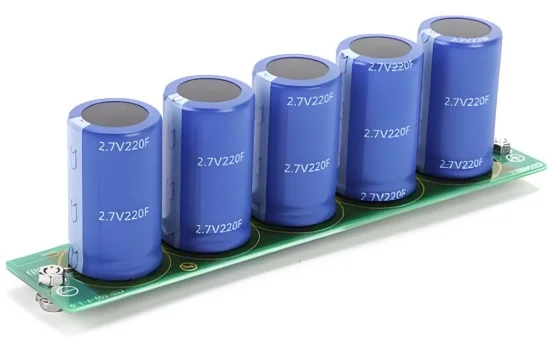
I. Definition and Characteristics of Supercapacitors
Supercapacitors, also known as electrochemical capacitors, double-layer capacitors, gold capacitors, or farad capacitors, are electrochemical components developed in the 1970s and 1980s that store energy through polarized electrolytes.
Unlike traditional chemical power sources, supercapacitors are a type of power source that lies between conventional capacitors and batteries, possessing unique performance characteristics. They primarily rely on double-layer capacitance and pseudocapacitance from redox reactions to store electrical energy. However, no chemical reaction occurs during the energy storage process; this process is reversible, allowing supercapacitors to be charged and discharged hundreds of thousands of times.
The specific details of the supercapacitor's structure depend on its applications and uses. Due to manufacturers' or specific application requirements, these materials may vary slightly. The commonality among all supercapacitors is that they contain a positive electrode, a negative electrode, and a separator between these two electrodes, with an electrolyte filling the pores created by these electrodes and separator.
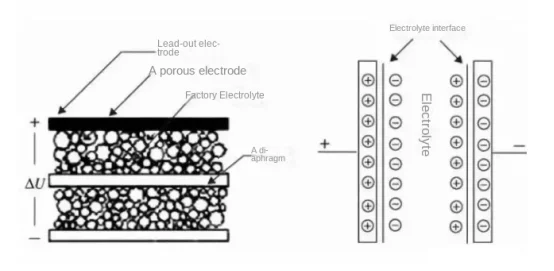
II. Process Flow of the Supercapacitor Liquid Injection System
1. Pre-injection Scanning and Weighing
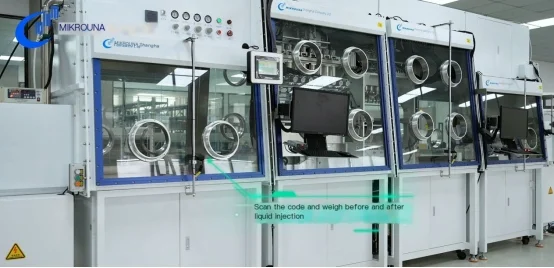
1) Scanning
By scanning, the system can obtain relevant information such as the model and batch number of the supercapacitor, providing accurate parameters for subsequent injection operations.
2) Weighing
The weighing stage accurately measures the initial weight of the supercapacitor, providing a basis for calculating the subsequent injection volume.
2. Vacuum Pumping
Vacuum pumping can create a vacuum state inside the supercapacitor, effectively removing air and impurities from within. In a vacuum environment, the electrolyte can more thoroughly saturate the electrode material, extending the lifespan of the supercapacitor.
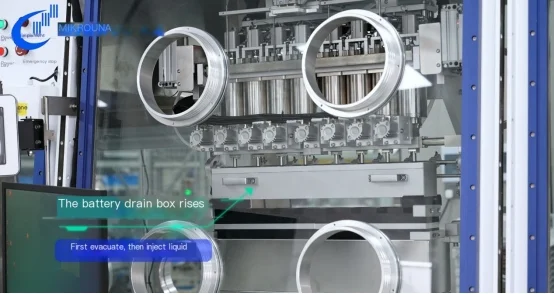
3. Preparation of Liquid
During the liquid preparation phase, it is essential to strictly control all parameters according to the specifications of the supercapacitor to accurately formulate the electrolyte.
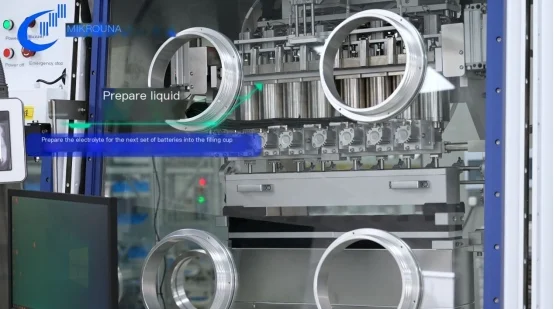
4. Injection
In this stage, the prepared electrolyte is injected into the supercapacitor. It is crucial to strictly control both the speed and flow rate of injection to ensure that the electrolyte is evenly distributed within the electrode material.
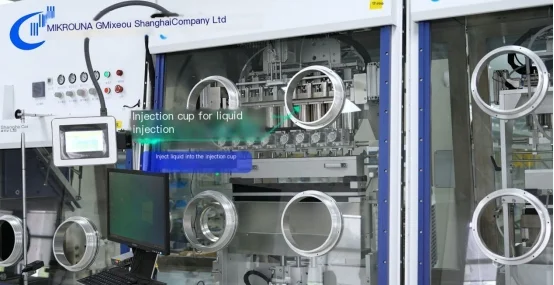
5. Post-injection Scanning and Weighing
After injection is complete, another scanning and weighing process is conducted to compare weight changes before and after injection. This step calculates the actual injection volume. By comparing with preset injection volumes, any issues during injection—such as insufficient or excessive amounts—can be promptly identified for adjustment.
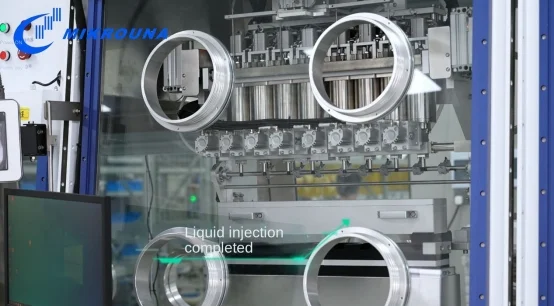
6. Data Upload
This step involves uploading relevant data from the injection process to a database. This data includes information such as model number, batch number, injection volume, and time. Data upload allows for traceability of the injection process and provides a basis for future process improvements.
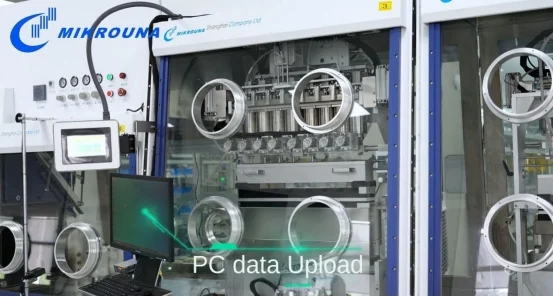
III. Core Parameters of the Supercapacitor Liquid Injection System
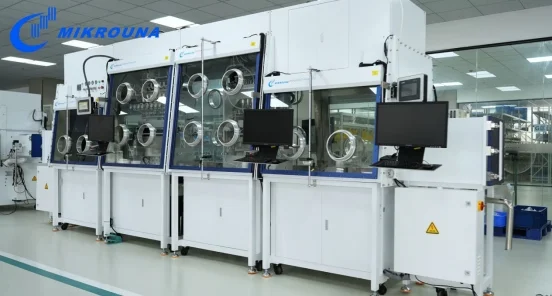
1. Injection Accuracy
The injection accuracy of the system can reach ±0.5%, meaning that there is minimal deviation between actual injected volume and preset volume, precisely meeting supercapacitor requirements for electrolyte content.
2. Injection Efficiency
An injection efficiency greater than or equal to 2ppm indicates that large volumes can be efficiently completed within a unit time frame, helping to shorten production cycles for supercapacitors.
3. Injection Range and Precision
Within an injection range of 100 to 200g, precision can be controlled within ±1g to ensure accurate and consistent injection volumes within this range.
4. Injection Pump Accuracy
The accuracy of the injection pump is ±0.5g for injected volume to ensure precision in injections.
5. Environmental Dew Point
A dew point lower than -45°C ensures very low moisture content in the air, preventing water vapor from contaminating electrolytes and affecting supercapacitor performance.
6. Water Content Indicator
A water content indicator below 1ppm strictly limits impurities in water content, benefiting supercapacitors by maintaining good performance and extending lifespan.
7. Leakage Rate
A leakage rate below 0.001vol%/h effectively avoids many issues arising from electrolyte leakage, ensuring safe and stable operation of the injection system.
The supercapacitor liquid injection system plays a vital role in producing supercapacitors due to its precise process flow and strict control over core parameters. As market demand for high-performance energy storage devices continues to grow, supercapacitor liquid injection systems will also undergo continuous optimization and upgrades to achieve broader application prospects.
- Art
- Causes
- Crafts
- Dance
- Drinks
- Film
- Fitness
- Food
- Spellen
- Gardening
- Health
- Home
- Literature
- Music
- Networking
- Other
- Party
- Religion
- Shopping
- Sports
- Theater
- Wellness


